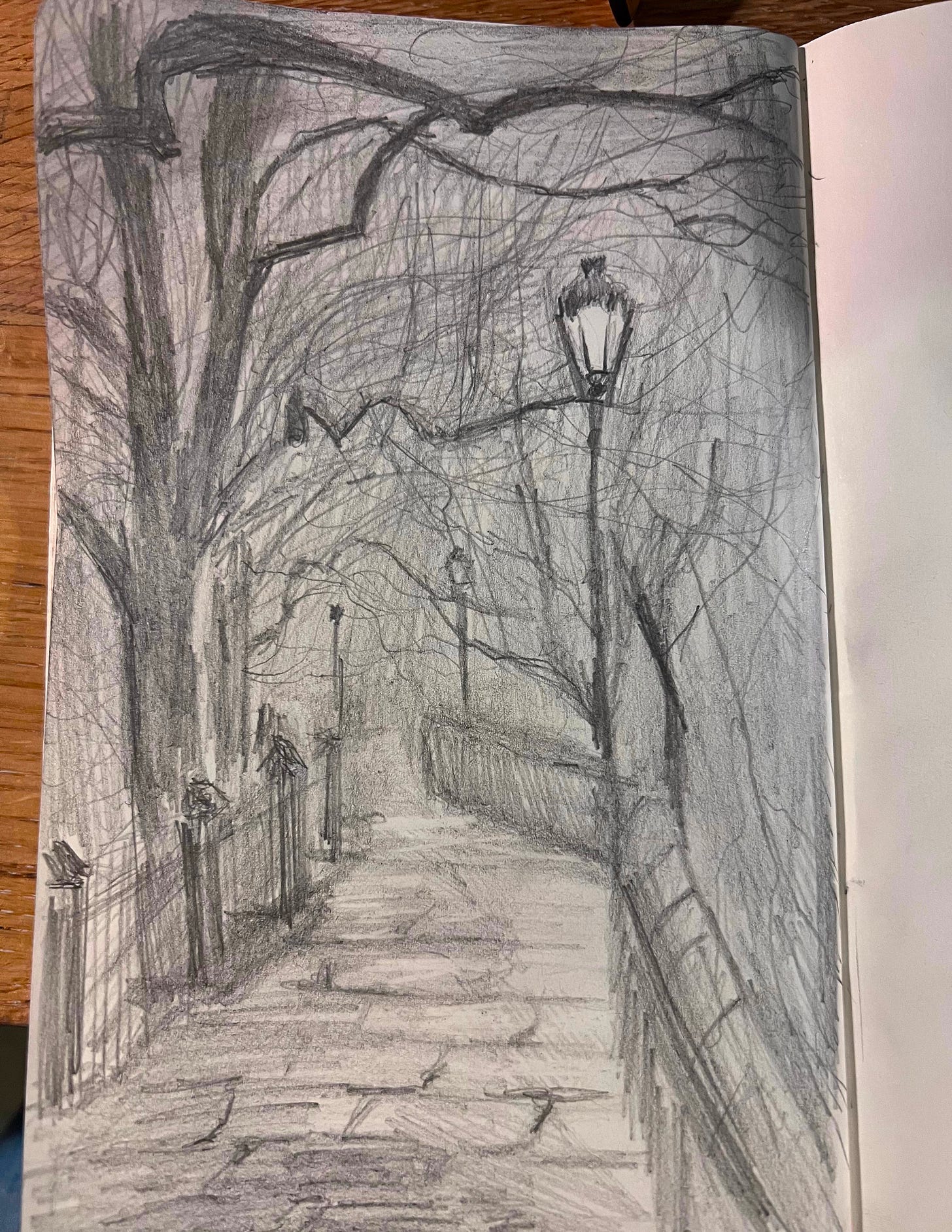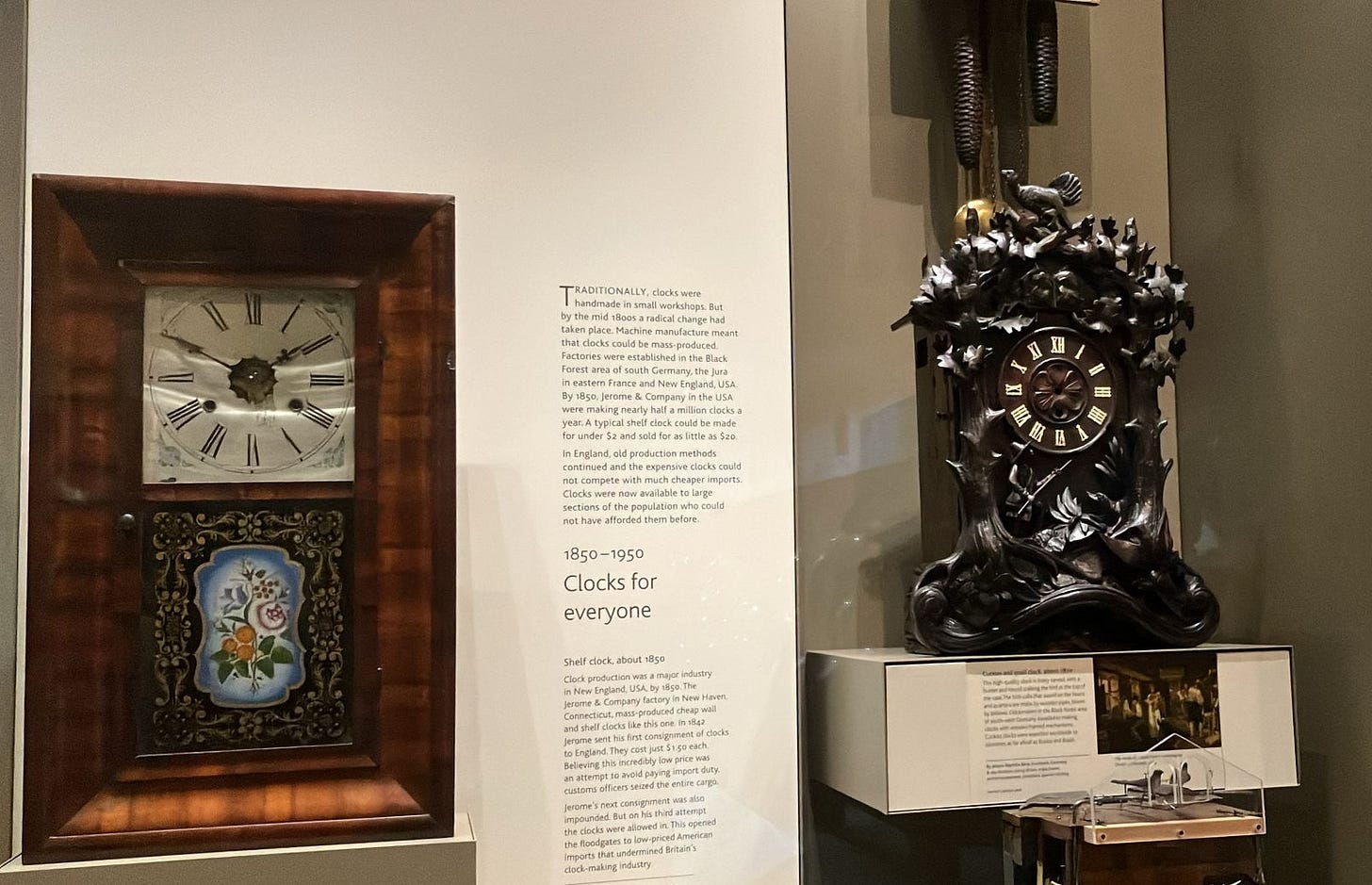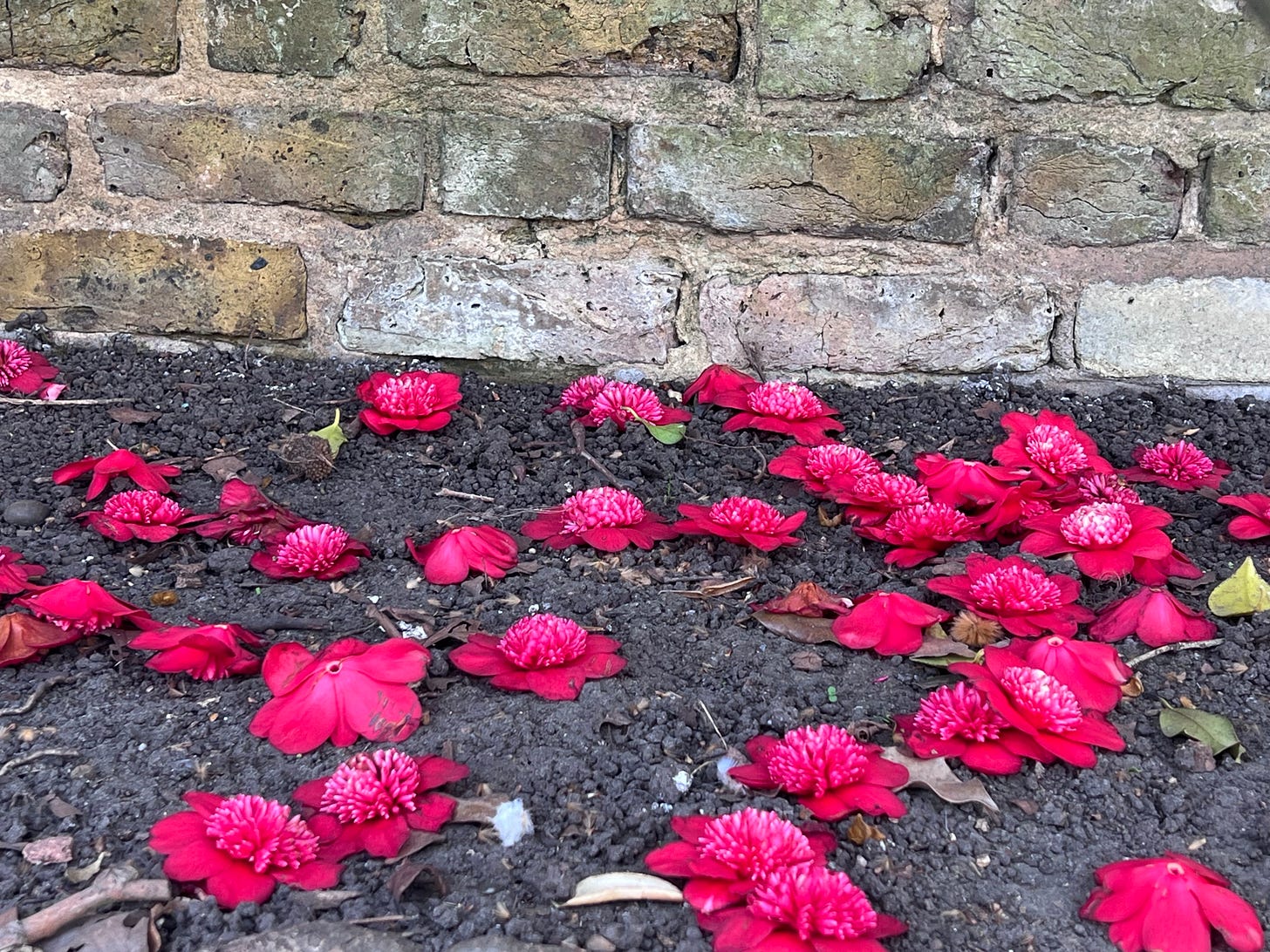How to Start Your Passion Project: A Motivational Roadmap to Prioritise, Plan, and Keep Going
How to start small, stay focused, thrive, and stick with what matters most.
A while ago (I can’t remember where), I came across either an essay or a YouTube video stating that, for the first time in human history, we’re trying to cope with an abundance of resources rather than scarcity, and we’re not built for that. I believe this abundance negatively affects our ability to choose and to get started. There are too many resources for us to possibly digest—videos, gurus, and articles all teaching us how to start living the life we want, whether that’s a passion project or an entrepreneurial idea. I’m probably contradicting myself and giving you one more idea to digest with this essay—hope it will be worth it. As someone who has tried many productivity, time-management, and goal-planning techniques, I aim to summarize what I’ve learned about getting started and what has actually worked for me.
Why Managing Excitement is Key
Managing excitement to avoid future overwhelm is key for me. I realised I have many interests and love last-minute, spontaneous decisions. I might set out for a walk and end up spending hours in a museum. I could decide to write an essay, then spot a paintbrush and put my watercolor supplies on my desk—no idea what I’ll paint, but just wanting to feel the brush move smoothly over textured paper because that sensation captivates me in the moment.
Sometimes my spontaneity feels perfectly in sync—as if my brain, body, heart, and soul are all aligned. Other times, it feels like I’m in a void and have no clue what I’m doing. That’s when I discovered I needed to learn to manage my excitement. It led me to prioritise, plan, let go of some projects, and roughly allocate time each week to the ones I’m working on.
It was hard to admit that I love collecting painting supplies more than the painting process itself—perhaps because I lack the patience required to learn certain techniques, and just want to jump right in. But that doesn’t matter, because I realised it was my least important hobby.

But How to Choose, How to Prioritise?
Starting something needs dedication, and when you start too many things, it’s inevitable you’ll soon run short of the energy required to accomplish each. So it’s better to evaluate our ideas from the beginning—our future self will thank us.
To choose and prioritise, what helps me as a first step is finding a place (real or imagined) where I feel safe, where no one can ask me anything, and I’m responsible for nothing. I like imagining myself alone on an island when a decision requires the real internal conversations I need to have. On my fantasy island, I speak with animals, live in a resort-like, natural, handmade little shed, and read and write – and I can return to the mainland (which is London) anytime I want.
Once you start to open up that inner vault, you can decide what your “thing/s” will be. This article I wrote can be a good start—it’ll help you ask the right questions of yourself to find your thing(s).
If you struggle even to come up with one idea, you might end up like a “robot person” who ignores their own needs. I call them robot people because they do what needs doing by shutting out their emotions—they don’t think much, they just do. But after a while, they realise most of their actions are automatic, not self-initiated. It frustrates them, yet the habit is so ingrained that they can’t even remember how to ask what they really want. It’s the scariest question for them, because following instructions feels safer than seeking. I’ll dive deep into this in another essay, so stay tuned.
How to Start?
Start with one thing—imagine what your wildest dream for it would be. Then list what’s holding you back. For instance, at some point in my life—ideally within the next 3–4 years—I want to write and publish a novel. It’s been an ongoing goal for quite a while, and I couldn’t start because I thought I wasn’t ready. So I asked myself, “Why do I think I’m not ready? Is it perfectionism?” No—the real reason was that I’d been reading only non-fiction for a long time. To achieve my goal, my first step was to read novels again, because that was what I needed. I gave myself permission to take my time. If we’re going to work on our passion projects, why wouldn’t we enjoy the ride?
While reading, I take my time. I’m a slow reader and visualize everything in my head. Sometimes I even cast actors I know as characters. For example, while reading East of Eden, I pictured Adam as Cosmo Jarvis (I was watching Shogun at the time), Charles as Jack Lowden (I was watching Season 2 of The Gold, which is unreleased, but I work at its distributor, so that’s a nice perk!), and Cathy as Sorcha Groundsell. Reading with the mindset of “I want to write” helps me analyze each author’s style.
Overall, maybe you haven’t started because you don’t give yourself permission to slow down—could that be it? Maybe you need to take baby steps until your “new project” feels safe enough to bombard you with “let’s do it!” excitement every spare moment you have. Remember: to go wherever you want to go, the path doesn’t need to be the quickest one; it should be the path you want to take, and it doesn’t matter when you arrive. There’s beauty in the juxtaposition of all the elements around you that shape you and affect the creative output you produce.
So once you decide what to do, give yourself permission to start from scratch, just like everyone else did before you. It’s crucial to allocate your time, space, energy, and emotions wisely between inputs and outputs. You have time to think, to decide, and to plan. Don’t believe otherwise.
Managing excitement is the key, permitting yourself to slow down is necessary, and giving yourself time and space to decide is crucial.
Your Lifestyle Matters More Than You Think
I’m a huge believer in the importance of your lifestyle choices. Are you an ambivert who sometimes enjoys socializing and sometimes prefers your own company? Then, aiming for something that requires you to be social all the time will be draining after a while.
When I was 13, I wanted to work on film sets—first as an actor, then as a director, and at one point as a DOP. Life didn’t happen that way. Although I’ve been in the media industry for over seven years (actually 5.5 years if you subtract my 1.5-year fashion adventure!), I’ve spent my career behind the scenes in audio production and distribution. Now, looking back, I’m glad it turned out this way because I need space and routine. I’m capable of handling high-adrenaline, last-minute changes, but that’s not the lifestyle I prefer.
Know your lifestyle choices:
Do frequent barbecue parties with friends matter to you?
Do you want to visit museums and exhibitions often?
Do you need more time just to consume beautiful films, TV shows, and art rather than create them yourself right now?
If what you’re trying to start is a job or a business, does it suit your financial expectations?
Are you an early bird or a night owl?
No matter how good you are at something or how excited you are to do it, if it doesn’t suit your lifestyle, it will bother you after a while, and we don’t want that.
That Big Fear: What if I Fail?
To overcome the fear of failure, we should remember it’s part of the journey. You will fail, then win, then fail again, then win—and so on. The first question is: what does failure mean to you? Being seen as a beginner? Not feeling 100% confident? Fear of people mocking you? Don’t worry—these things could happen, but they aren’t as important as you think. We human beings are all very different, and we love to criticize. Many people hate Taylor Swift, and many people love her. What if she’d been too afraid to go on stage and put herself out there? We wouldn’t know, and we wouldn’t care. But now we do know, now we criticize, and after a minute or two, we don’t care again. So here’s my thinking: by 2100, most of the people we share this century with will be gone. While we’re alive, let’s focus on ourselves and do whatever we want. Most people don’t actually care about us as much as we think they do. This may sound harsh, but for me, it’s liberating.
Another aspect of the fear of failure is the potential discouragement we anticipate from those around us. Many people never really have the courage to admit—even to themselves—that they want to start something, too. I find that these people are often the most critical when someone else begins their own journey. It’s not about you or your endeavor; they’re simply triggered by their own unresolved wounds. I’ve come across surprising reactions when I shared my projects with people I thought cared about my well-being. I won’t go into details to keep things positive, but my reaction would be full of energy—jumping and celebrating—if the scenario were reversed and they were sharing their projects with me.
So, there will be people supporting you, and there will be people watching you with unease. Don’t focus on the negative stuff. You can’t possibly do everything right. You need a stomach for some unnecessary negativity. Don’t let those “black-hole, beauty-eater” feelings consume your days with overthinking.

Motivation Fuel
I have confidence in myself when it comes to starting and achieving something. That confidence doesn’t come directly from being “me”—it comes from my possibility-calculating, mathematical brain. The moment I decide on something, I start mapping out all the ways I could do it and realize there are too many options. That abundance makes me think, “If this one doesn’t work, I’ll do that. If that doesn’t work, I’ll try another,” and so on. It gives me an “I’ll find a way, one way or another” mindset—and makes me feel that success is 90% possible. With that feeling, I guarantee you, my friends, you start things as a winner. Psychologically, when you start as a winner, it affects your approach positively. Start each project with your best, then let things unfold. Once you’ve done your part, the ball is out of your court, and the world decides what happens next. Don’t expect anything, and then every small thing becomes a win, which fuels your confidence more and more.
Key takeaways and the roadmap:
Manage your excitement. Write everything you want to do on a scrap of paper, in a Word document, or anywhere you like.
Find your safe place (real or imaginary) to decide what your project(s) will be.
Rank your projects. Assign them numbers—1, 2, 3…—based on how important they are to you.
Limit your focus. Choose up to four things. Ask yourself: What will they mean to me? What future do I imagine for each?
Plan your resources. How can you manage your time and energy across those project(s)?
Wrapping It Up:
There are endless possibilities for success—manage your excitement and identify which ideas are solid. Decide on your project(s), start with your best, and maintain a positive mindset no matter what. Know your lifestyle choices and plan accordingly. Don’t be afraid to look like a beginner—everyone who achieved something did at some point. Learn to manage your time, space, energy, and emotions. Don’t expect anything; just do it. Once it’s done, let go. That’s not your problem whether the world will like it or not. It got out of your mind, and you made it real. That’s what matters. So give yourself an applause, you started.




I can’t even finish the read before commenting as it had to burst out off of me :)
The thing about starting a project is an obvious struggle. I can say that. Sometimes it can get a bit tricky for me in a way. Idk if it has the same effect on you but i’ll explain it.
Starting new thing has its own excitement and has its own motivational starting boost in itself. Just for these reasons, i sometimes find myself starting new instead continuing previous ones. You can say that it’s an ADHD thing. But who isn’t ADHD these days:)
I know the read is now about that but just wanted to say that.
Thank you so much for this! I really needed it. I am working on establishing my brand as an illustrator after working in animation for nearly a decade. This is helping me feel like I can get my bearings and move forward.